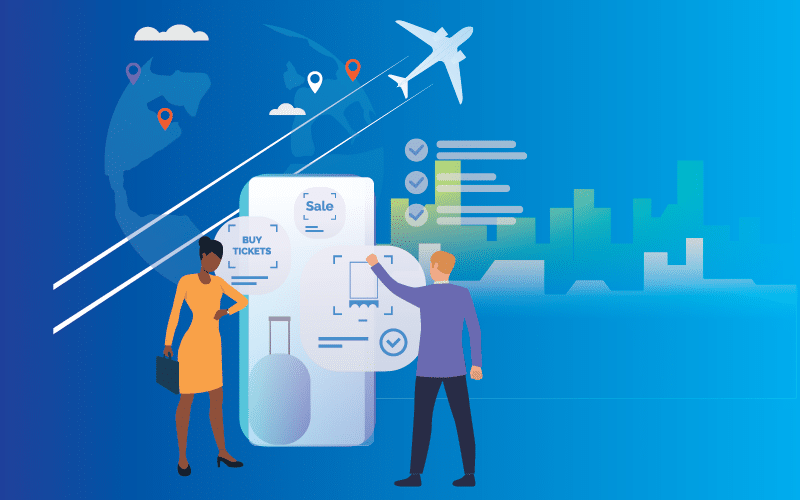Exploring the Comprehensive Features of Travel Management Software
In the fast-paced world of modern travel, efficiency and organization are paramount. Whether you’re a business executive coordinating corporate travel or an individual planning a vacation, the right tools can make all the difference. This is where travel management software steps in, offering a suite of features designed to streamline the entire travel process, from booking flights to tracking expenses. In this comprehensive guide, we’ll delve into the key features of travel management software, exploring how they enhance convenience, savings, and overall travel experiences.
Understanding Travel Management Software
Travel software is a specialized solution designed to simplify and optimize various aspects of travel planning and expense management. It serves a wide range of users, including corporate travel managers, travel agencies, and individual travelers. By consolidating travel-related tasks into a single platform, these tools help users save time, reduce costs, and ensure compliance with travel policies.
Key Features of Travel Management Software
1. Travel Booking and Reservation Management
One of the primary functions of travel management is facilitating bookings for flights, accommodations, rental cars, and other travel-related services. These platforms often integrate with global distribution systems (GDS) and online booking engines to provide access to a vast inventory of travel options. Users can search, compare, and book travel arrangements directly within the software interface, saving time and ensuring consistency.
2. Policy Compliance and Approval Workflows
For businesses, maintaining compliance with travel policies is essential for controlling costs and ensuring duty of care for employees. Travel management software enables organizations to establish predefined travel policies and approval workflows. Before booking, travelers can submit their itinerary for approval, ensuring that it aligns with company guidelines regarding expenses, preferred vendors, and travel routes.
3. Expense Management and Reporting
Tracking travel expenses manually can be tedious and error-prone. Travel software simplifies this process by allowing users to capture expenses digitally, either by uploading receipts or linking payment cards. Expenses are categorized automatically and can be assigned to specific trips or projects. Additionally, these platforms generate detailed expense reports, providing insights into travel spending patterns and facilitating reimbursement procedures.
4. Itinerary Management and Trip Collaboration
Keeping track of travel itineraries, reservations, and important documents can be challenging, especially for frequent travelers or large groups. Travel software centralizes itinerary management, storing all trip details in one place. Users can access their itineraries from any device, receive real-time updates on flight delays or changes, and share trip information with colleagues or travel companions.
5. Travel Policy Compliance and Analytics
Travel software offers robust analytics capabilities, allowing organizations to monitor travel patterns, identify cost-saving opportunities, and assess policy compliance. By analyzing data on travel expenses, booking trends, and supplier performance, businesses can negotiate better rates with vendors, optimize travel budgets, and enforce adherence to corporate travel policies.
6. Risk Management and Duty of Care
In today’s uncertain world, ensuring the safety and security of travelers is paramount. Travel management software incorporates features for assessing and mitigating travel risks, such as access to real-time travel alerts, destination-specific safety information, and emergency assistance services. This helps organizations fulfill their duty of care obligations and provides travelers with peace of mind during their journeys.
7. Supplier Management and Negotiation Tools
Effective supplier management is crucial for securing favorable rates and ensuring quality service for travelers. Travel management software includes tools for managing supplier relationships, tracking contract terms, and conducting negotiations. By consolidating bookings and leveraging aggregated travel data, organizations can strengthen their bargaining position with airlines, hotels, and other vendors.
8. Mobile Accessibility and Integration
In an era dominated by mobile technology, travelers expect the flexibility to manage their trips on the go. Leading travel software offers mobile apps or responsive web interfaces, allowing users to access essential features from their smartphones or tablets. Moreover, these platforms often integrate with other business tools such as expense management systems, calendar apps, and communication platforms, enabling seamless workflow integration.
Conclusion
Travel management software has revolutionized the way individuals and organizations plan, book, and manage their travel activities. By harnessing the power of automation, data analytics, and integrated workflows, these platforms offer a comprehensive solution for optimizing travel experiences while maximizing efficiency and cost savings. Whether you’re a frequent business traveler or a leisure adventurer, investing in a reliable software can significantly enhance your travel journey from start to finish.

























